Who is Abu Mohammed al-Jolani, leader of Syrian insurgents HTS?
4 min readAbu Mohammed al-Jolani, leader of the insurgent alliance that has captured swathes of Syria in a lightning offensive, is an extremist who has adopted a more moderate posture to try to achieve his goals.
At the head of Hayat Tahrir al-Sham (HTS), which is rooted in Syria’s branch of Al-Qaida, Jolani says the goal of his offensive is to overthrow president Bashar al-Assad’s rule.
“When we talk about objectives, the goal of the revolution remains the overthrow of this regime. It is our right to use all available means to achieve that goal,” Jolani told CNN in an interview aired on Friday.
Jolani operated from the shadows for years. Now, he is in the limelight, giving interviews to the international media and appearing on the ground in Syria’s second city Aleppo after wresting it from government control for the first time in the country’s civil war.
He has over the years stopped sporting the turban worn by militants, often favouring military fatigues instead. On Wednesday, he wore a khaki shirt and trousers to visit Aleppo’s citadel, standing at the door of his white vehicle as he waved and moved through the crowds.
Since breaking ties with Al-Qaida in 2016, Jolani has sought to portray himself as a more moderate leader. But he is yet to quell suspicions among analysts and western governments that still class HTS as a terrorist organisation.
“He is a pragmatic radical,” said Thomas Pierret, a specialist in political Islam.
“In 2014, he was at the height of his radicalism,” Pierret said, referring to the period of the war when he sought to compete with the Islamic State group. “Since then, he has moderated his rhetoric,” he added.
Born in 1982, Jolani was born to a well-to-do family and raised in Mazzeh, an upmarket district of Damascus.
During the offensive he launched on 27 November, he started signing his statements under his real name – Ahmed al-Sharaa.
In 2021, he told US broadcaster PBS that his nom de guerre was a reference to his family roots in the Golan Heights, claiming that his grandfather had been forced to flee after Israel’s annexation of the area in 1967.
According to the Middle East Eye news website, it was after the 11 September 2001 attacks that Jolani was first drawn to militant thinking.
“It was as a result of this admiration for the 9/11 attackers that the first signs of militancy began to surface in Jolani’s life, as he began attending secretive sermons and panel discussions in marginalised suburbs of Damascus,” the website said.
Following the US-led invasion of Iraq, he left Syria to take part in the fight.
He joined Al-Qaida in Iraq, led by Abu Musab al-Zarqawi, and was subsequently detained for five years, preventing him from rising through the ranks of the militant organisation.
In March 2011, when the revolt against Assad’s rule erupted in Syria, he returned home and founded the al-Nusra Front, Syria’s branch of Al-Qaida.
In 2013, he refused to swear allegiance to Abu Bakr al-Baghdadi, who would go on to become the emir of the Islamic State group, and instead pledged his loyalty to Al-Qaida’s Ayman al-Zawahiri.
A realist in his partisans’ eyes, an opportunist to his adversaries, Jolani said in May 2015 that he, unlike Islamic State, had no intention of launching attacks against the west. He also proclaimed that should Assad be defeated, there would be no revenge attacks against the Alawite minority which the president’s clan stems from.
He cut ties with Al-Qaida, claiming to do so in order to deprive the west of reasons to attack his organisation. According to Pierret, he has since sought to chart a path towards becoming a credible statesman.
In January 2017, Jolani imposed a merger with HTS on rival Islamist groups in north-west Syria, thereby claiming control of swathes of Idlib province that had fallen out of government hands.
In areas under its grip, HTS developed a civilian government and established a semblance of a state in Idlib province, while crushing its rebel rivals. Throughout this process, HTS faced accusations from residents and rights groups of brutal abuses against those who dared dissent, which the UN has classed as war crimes.
Also, read this
Syrians stroll through Assad’s palaces, take furniture and ornaments
Aware perhaps of the fear and hatred his group has sparked, Jolani has addressed residents of Aleppo, home to a sizeable Christian minority, in a bid to assure them that they would face no harm under his new regime.
He also called on his fighters to preserve security in the areas they had “liberated” from Assad’s rule. “I think it’s primarily just good politics,” said Aron Lund, a fellow of the Century International thinktank.
“The less local and international panic you have and the more Jolani seems like a responsible actor instead of a toxic extremist, the easier his job will become. Is it totally sincere? Surely not,” he said. “But it’s the smart thing to say and do right now.”
For the latest news, follow us on Twitter @Aaj_Urdu. We are also on Facebook, Instagram and YouTube.
















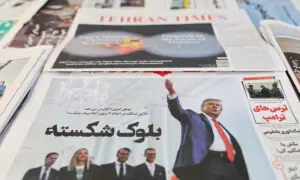


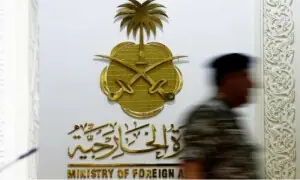
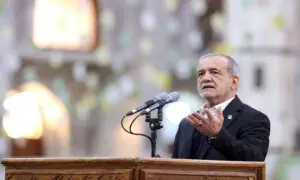
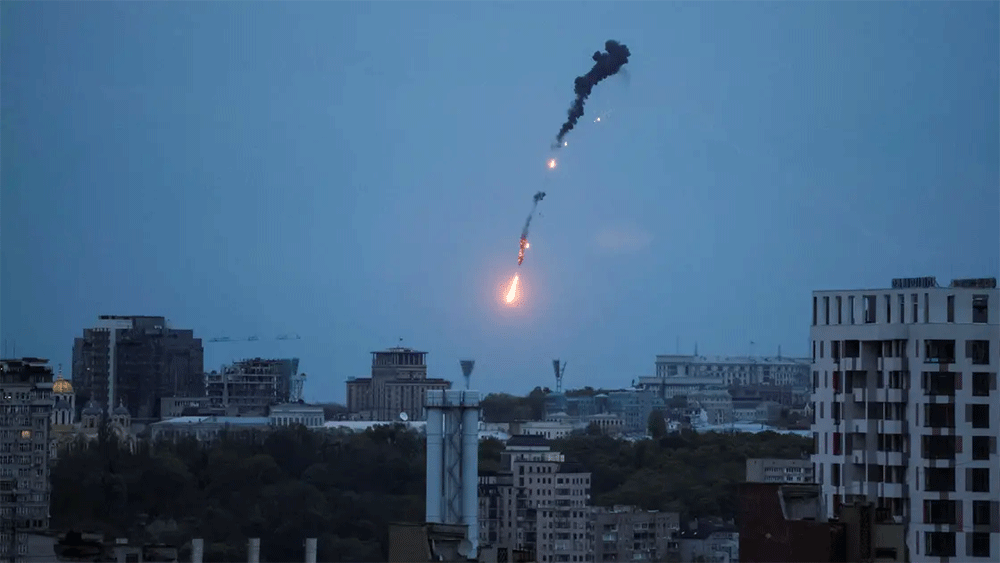
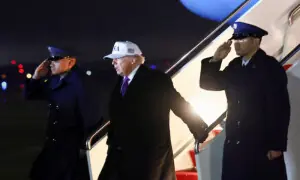
Comments are closed on this story.